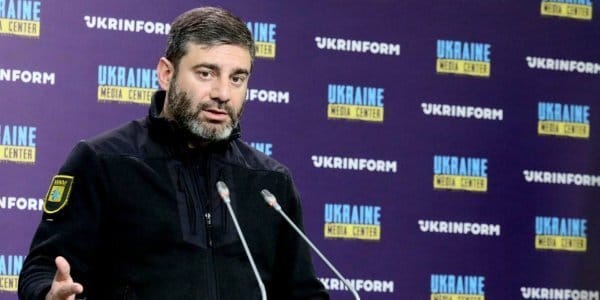According to an interview with Ukrainian Parliament Commissioner for Human Rights Dmytro Lubinets, 86% of Ukrainian soldiers returning from Russian captivity have reported being subjected to direct physical torture, Russia holds 20,000 Ukrainian civilians, and lies to Ukrainian POWs that Ukraine does not want them, attempting to pressure them into speaking out against Ukraine for Russian propaganda media.
Lubinets stated, speaking with Ukrainska Pravda, that Ukraine opens proceedings for each returned POW and record facts confirming the undignified treatment of Ukrainian soldiers in Russian captivity.
“As for torture, according to our data, 86% of those who returned from captivity directly reported direct physical torture,” he added
Lubinets also mentioned that these findings were not only established by his office but also by the United Nations International Human Rights Mission, which reported similar figures. However, he refused to provide further details on the specific cases, claiming that after Ukrainian officials publicly voice such facts, the Russians begin to treat Ukrainian POWs with even greater cruelty.
Other notable takeaways from the interview:
Dozens of videos of Russians executing Ukrainian POWs
In the same interview, Lubin said that over the past 9 months, the Ombudsman’s Office has received “dozens of videos” of public executions of Ukrainian soldiers by Russian soldiers.
“This includes cutting off the head, cutting off genitals, cutting off ears, nose, limbs, and fingers. Some [Russians committing the executions] have been identified. And I know that one person has been punished (he died during a military clash with Ukrainian troops).”
Russia publicly disseminates videos of executions of Ukrainian soldiers for three reasons, Lubinets believes:
- to “maintain the degree of anti-Ukrainian hysteria” within Russian society;
- to convince its soldiers not to surrender to the Ukrainian Armed Forces (“They will kill you like this if you decide to surrender”);
- thirdly, to intimidate the Ukrainian military, which is preparing for a counteroffensive.
20,000 Ukrainian civilians held captive by Russians
Russia currently holds over 20,000 civilian hostages, based on the number of relatives who have officially contacted Lubinets, and the actual number is likely even higher: relatives of the hostages captured in Russian-occupied territories of Ukraine, including parts of Kherson Oblast, Zaporizhzhia, Donetsk, Luhansk oblasts, and Crimea, are hesitant to reach out for help, fearing reprisals. “Even having the technical capability through the internet, they are simply afraid,” he said. Relatives understand that contacting the Ukrainian Ombudsman could lead to detention, espionage accusations, and being added to the pool of hostages for future exchanges.
The process of securing the return of civilian hostages is proving to be difficult. Lubinets stated that Ukraine is seeking alternative solutions, as they will not accept large-scale military prisoner exchanges that include civilian hostages.
Russia lies to the POWs that Ukraine doesn’t seek to return them
Russia has been subjecting Ukrainian civilian hostages to psychological pressure and manipulation. “They [the Russian Federation] directly tell them: ‘Ukraine doesn’t ask for you,’ ‘Ukraine does not need you,’ ‘There is an open criminal case against you,’ ‘Your relatives have disowned you’,” Lubinets said, describing the additional pressure, manipulation, and psychological torture inflicted on Ukrainian citizens.
One military hostage, who was eventually released, shared his experience of being taken for an exchange eight times but never actually exchanged. “They supposedly drove him somewhere eight times, then returned him and said, ‘Others were taken, but about you, they said, “No. We don’t need this one”‘,” Lubinets recounted.
According to Lubinets, the Russian Federation employs these tactics to pressure military personnel and civilians to speak out against Ukraine on camera. Additionally, he explains that these strategies aim to provoke unrest within Ukraine. By making relatives in Ukraine feel hopeless due to the lack of substantial results, they may be driven to protest and criticize the Ukrainian government, thereby inciting turmoil within Ukrainian society.
Related:
- “Russians feared us, frightened women, because they couldn’t break us”: Ukrainian women on Russian prison
- Video of ISIS-style execution of Ukrainian POW shared by Russian TG channels
- Ukrainian special unit called “Angels” rescues Ukrainian POWs from occupied territory — MP

